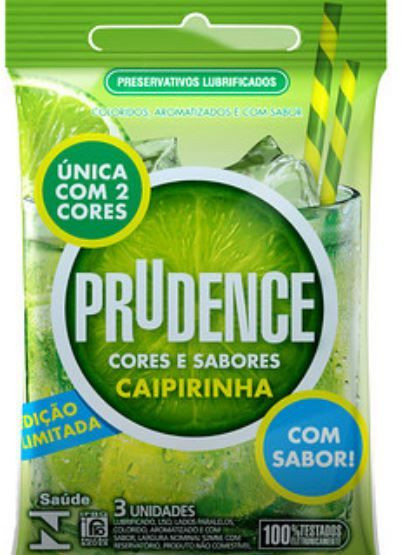World Cup Condoms Taste Like A Caipirinha, Brazil’s National Cocktail, But Will People Use Them?

The World Cup is as much about the condoms as it is about the soccer. Karex Bhd, the world’s largest maker of condoms, is distributing specialty Brazil-themed condoms under its Prudence brand, The Wall Street Journal reported. The condoms are colored yellow and green and taste like Caipirinha, the nation’s signature cocktail, which is made with Cachaça, brown sugar, and lime. DKT International, a Washington-based nonprofit that promotes family planning and HIV prevention in developing countries, ordered the vibrant condoms from Karex to be made available only in Brazil. In just 15 days, the first delivery of 846,000 condoms sold out, and since February, about 700,000 packs of three — or 2.1 million individual units — have been sold, according to DKT.
“Major sports or cultural events attract a great number of people and garner much attention, providing a good opportunity to spread a pleasurable and fun safe-sex message,” Daniel Marun, DKT’s director for Brazil operations, told The Wall Street Journal. The condoms are being sold at major supermarkets and pharmacy chains throughout Brazil and retail for about $1.39 per pack. Surprisingly, DKT has some stiff competition.

UNAIDS, the United Nations Program on HIV/AIDS, is also promoting safe sex during the World Cup through its "Protect the Goal" campaign. Throughout the 12 Brazilian cities hosting the world soccer championship, UNAIDS has distributed about two million condoms to fans. The global market for condoms is expected to reach 44 billion units by 2020, according to Global Industry Analysts, The Wall Street Journal reported. In 2007, an estimated 2.7 million people became newly infected with HIV. Of these, almost half (45 percent) were between the ages of 15 and 24, UNAIDS states, with young girls at a greater risk of infection than boys. For this reason, the organization promotes the male latex condom as “the single, most efficient, available technology to reduce the sexual transmission of HIV and other sexually transmitted infections.”
As of 2012, UNAIDS estimated that 530,000 to 660,000 people in Brazil are living with HIV, with as many as 19,000 deaths in that year alone. Among the Brazilian sexually active population (counted as those between the ages of 15 to 64), the number of people who were tested for HIV at least once increased from approximately 28 percent in 2004 to almost 37 percent in 2013. “The percentages of individuals who reported using condoms regularly are not yet satisfactory,” wrote the authors of a Brazilian Ministry of Health report. Condom use during the last instance of sexual intercourse within the past year, the report said, was 39 percent among people between 15 and 64.
The World Cup condoms may be the most enticing promotion of safe sex ever seen. Unfortunately, because they are so beautiful, many people are saving them as a memento of the soccer event.
Published by Medicaldaily.com



























